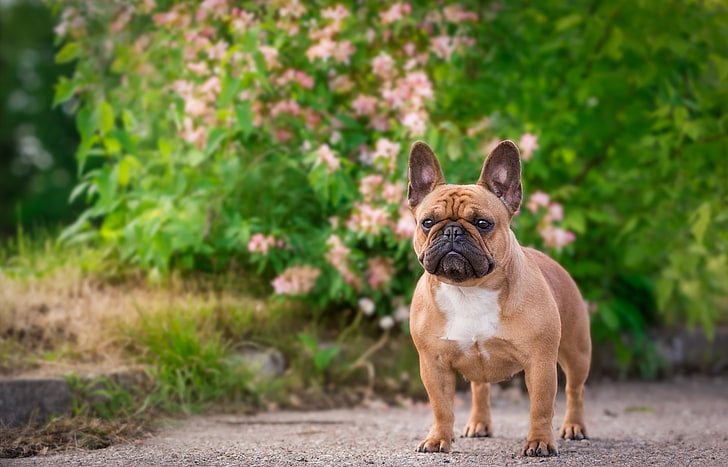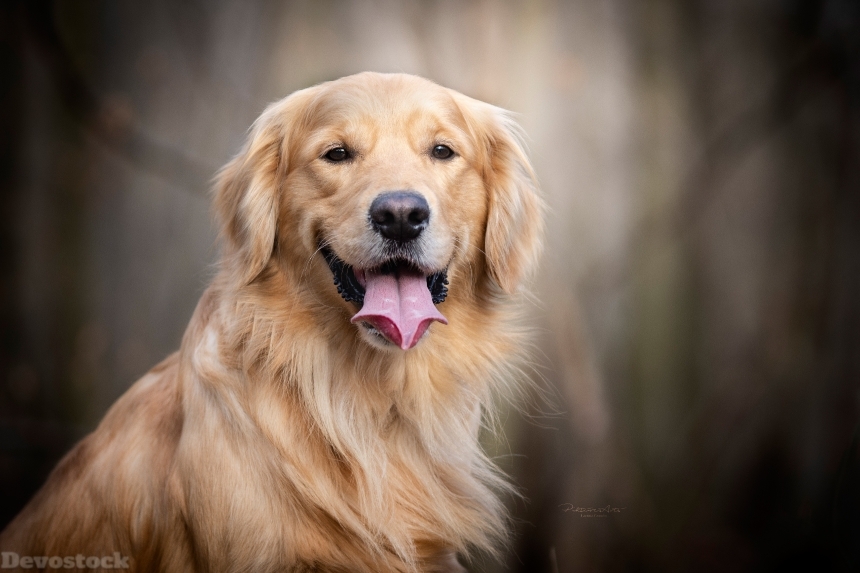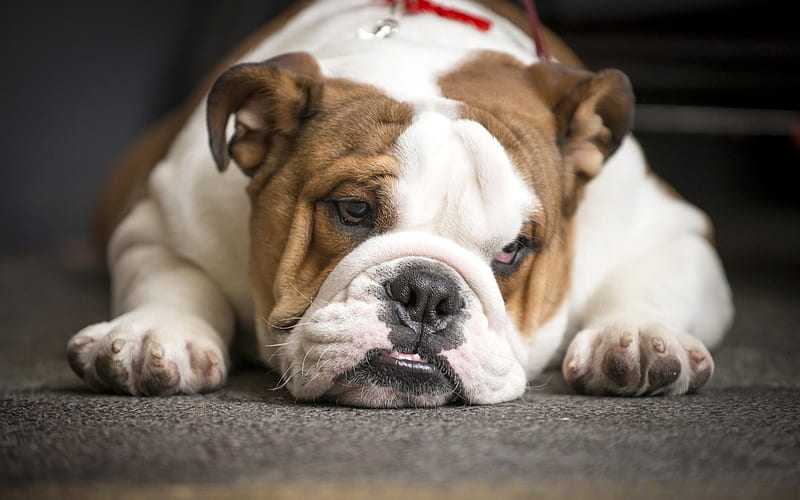Thinking about welcoming a furry friend into your life? Dogs bring endless joy, companionship, and unconditional love. But for first-time owners, choosing the right breed is crucial. This guide explores 10 fantastic dog breeds ideally suited for those new to the wonderful world of dog ownership, all recommended by veterinarians!
Remember: Every dog is an individual, and even within breeds, personalities can vary. These recommendations offer a general starting point, but meeting different breeds and talking to breeders or shelters is always wise.
10 Best Breeds for First-Time Dog Owners
Following are the 10 best dog breeds for first-time dog owners
1. Labrador Retriever: America’s Favourite Friendly Giant

- Why They’re Great for First-Timers: Labradors are renowned for their gentle, affectionate nature. They’re intelligent, eager to please, and relatively easy to train. Their playful personalities make them fantastic companions for families with children.
- Energy Level: Labradors are energetic dogs who need regular exercise, like daily walks and playtime. A fenced-in backyard is ideal for them to run and burn off steam.
- Grooming Needs: Labradors have a short, double coat that sheds moderately. Regular brushing (once or twice a week) helps manage shedding.
- Things to Consider: Labradors can be quite large and require ample space. They also love water, so be prepared for potential swimming escapades!
2. Cavalier King Charles Spaniel: The Gentle Aristocrat

- Why They’re Great for First-Timers: These charming little dogs are known for their sweet and gentle temperament. They’re relatively inactive indoors, making them suitable for apartment living.
- Energy Level: Cavalier King Charles Spaniels are moderately active. They enjoy daily walks and playtime but don’t require excessive exercise.
- Grooming Needs: Regular brushing (every other day) is recommended to maintain their silky coat. Occasional professional grooming might be needed.
- Things to Consider: These dogs can be prone to certain health conditions. Responsible breeding and regular vet checkups are essential.
3. Beagle: The Merry Scent Hound

- Why They’re Great for First-Timers: Beagles are cheerful, friendly dogs with a playful personality. They’re intelligent and relatively easy to train, but their strong sense of smell can sometimes lead them astray on walks!
- Energy Level: Beagles are moderately energetic and enjoy daily walks and playtime. Their curious nature makes them great for exploring the outdoors.
- Grooming Needs: Beagles have a short, low-maintenance coat that sheds moderately. Regular brushing (once a week) is sufficient.
- Things to Consider: Beagles can be quite vocal, prone to howling. Providing them with mental stimulation and plenty of exercise can help minimize this behaviour.
4. Poodle (Standard, Miniature, or Toy): The Intelligent and Versatile Performer

- Why They’re Great for First-Timers: Poodles come in three sizes (Standard, Miniature, and Toy) to suit different living spaces. They’re highly intelligent, eager to please, and excel at training. Their hypoallergenic coat makes them a good choice for allergy sufferers.
- Energy Level: Poodles can be quite energetic, especially Standards and Miniatures. Daily walks and playtime are essential. Toys can be less active but still require exercise.
- Grooming Needs: Poodles require regular brushing (every other day) and professional grooming every 4-6 weeks to maintain their signature curly coat.
- Things to Consider: Poodles’ intelligence can sometimes lead to boredom if not mentally stimulated. Provide them with interactive toys and training to keep them engaged.
Also Read: Heatstroke vs. Heat Exhaustion in Dogs! Learn the Key Difference
5. Pug: The Wrinkly Charmer

- Why They’re Great for First-Timers: Pugs are known for their playful and affectionate personalities. They’re relatively inactive indoors, making them suitable for apartments. Their comical expressions will melt your heart!
- Energy Level: Pugs are low-energy dogs and content with short walks and playtime indoors. Be mindful of overexertion due to their short snouts.
- Grooming Needs: Pugs have a short, single coat that sheds moderately. Regular brushing (once a week) is recommended. Pay attention to their wrinkles and clean them regularly to avoid
- Things to Consider: Pugs can be prone to breathing problems due to their short snouts. Avoid strenuous exercise in hot weather. They can also be stubborn at times, requiring patient training with positive reinforcement.
6. Bichon Frise: The Powderpuff Playmate

- Why They’re Great for First-Timers: Bichon Frises are known for their cheerful and affectionate personalities. They’re intelligent, eager to please, and relatively easy to train. Their non-shedding, hypoallergenic coat makes them perfect for allergy sufferers.
- Energy Level: Bichon Frises are moderately energetic and enjoy daily walks and playtime. They love interacting with their owners and are always up for a cuddle.
- Grooming Needs: Bichon Frises require regular brushing (every other day) and professional grooming every 4-6 weeks to maintain their white, fluffy coat. Regular ear cleaning is also important.
- Things to Consider: Bichon Frises can be prone to separation anxiety. Providing them with companionship and crate training can help alleviate this issue.
7. French Bulldog: The Bat-Eared Charmer

- Why They’re Great for First-Timers: French Bulldogs are known for their playful and affectionate personalities. They’re relatively low-maintenance and adaptable to apartment living due to their moderate energy levels.
- Energy Level: French Bulldogs are moderately energetic and enjoy daily walks and playtime indoors. However, they can overheat easily due to their short snouts, so be mindful during exercise.
- Grooming Needs: French Bulldogs have a short, single coat that sheds minimally. Regular brushing (once a week) is sufficient. Pay attention to their wrinkles and clean them regularly to avoid irritation.
- Things to Consider: French Bulldogs can be stubborn at times, requiring patient and positive reinforcement training. They also snore quite loudly, something to consider if you’re a light sleeper!
8. Shih Tzu: The Regal Lapdog

- Why They’re Great for First-Timers: Shih Tzus are known for their gentle and affectionate personalities. They’re relatively inactive indoors, making them suitable for apartments. Their long, flowing hair requires regular grooming, but they’re quite adaptable and happy to cuddle on the couch.
- Energy Level: Shih Tzus are low-energy dogs and content with short walks and playtime indoors. They’re more interested in companionship and cuddles than vigorous exercise.
- Grooming Needs: Shih Tzus have long, flowing hair that requires daily brushing and professional grooming every 4-6 weeks to prevent matting. Regular eye cleaning is also important.
- Things to Consider: Shih Tzus’ long hair can obstruct their vision. Regular trims around the eyes are necessary. Their flat faces can also lead to breathing difficulties, so avoid strenuous exercise in hot weather.
9. Golden Retriever: The Friendly Golden Giant

- Why They’re Great for First-Timers: Golden Retrievers are renowned for their gentle, friendly nature. They’re intelligent, eager to please, and excel at training. Their playful personalities make them fantastic companions for families with children.
- Energy Level: Golden Retrievers are highly energetic dogs who need regular exercise, like daily walks, playtime, and mental stimulation. A fenced-in backyard is ideal for them to run and burn off steam.
- Grooming Needs: Golden Retrievers have a long, double coat that sheds moderately. Regular brushing (a few times a week) helps manage shedding. Bathing every 2-3 months is recommended.
- Things to Consider: Golden Retrievers are quite large and require ample space and exercise. They can also be prone to separation anxiety, so providing them with companionship and crate training is beneficial.
Also Read: 5 Reasons Why My Dog Rubs His Face on Me and How to Respond
10. Bulldog: The Gentle Giant with a Grumpy Face

- Why They’re Great for First-Timers: Bulldogs are known for their laid-back and affectionate personalities. They’re relatively inactive indoors, making them suitable for apartments. Despite their grumpy expressions, they’re gentle giants who love to cuddle.
- Energy Level: Bulldogs are low-energy dogs and content with short walks and playtime indoors. Be mindful of overexertion due to their short snouts and tendency to overheat easily.
- Grooming Needs: Bulldogs have a short, single coat that sheds moderately. Regular brushing (once a week) is sufficient. Pay close attention to their wrinkles and clean them regularly to avoid infections. Cleaning their facial folds after meals is also important.
- Things to Consider: Bulldogs can be stubborn at times, requiring patient and positive reinforcement training. Their short snouts can lead to breathing difficulties, so avoid strenuous exercise in hot weather. They also snore quite loudly!
Beyond the Breeds: Additional Considerations for First-Time Owners
Choosing the right breed is a crucial first step, but other important factors come into play for first-time dog owners:
- Lifestyle: Consider your lifestyle. Do you live in an apartment or a house? Are you active or prefer a more relaxed pace? Choose a breed that complements your lifestyle for a happy and harmonious relationship.
- Training: All dogs require training, but some breeds are more challenging than others. Be prepared to invest time and effort in training your dog, regardless of the breed.
- Cost: Owning a dog comes with expenses like food, vet bills, training, and grooming. Factor in these costs before welcoming a furry friend into your life.
- Adoption vs. Breeder: Consider adopting a dog from a shelter or rescue organization. Many wonderful dogs of various breeds await loving homes. If you’re set on a specific breed, research reputable breeders who prioritize ethical breeding practices.
Welcome to the Wonderful World of Dog Ownership!
With careful consideration, research, and responsible pet ownership, welcoming a dog into your life can be an incredibly rewarding experience. The unconditional love, companionship, and joy a dog brings are truly priceless.
This guide provides a starting point, but remember, every dog is an individual. Meeting different breeds, talking to breeders or shelters, and consulting with a veterinarian can help you find the perfect canine companion for your unique situation.
So, are you ready to embark on this exciting adventure? With the right preparation and an open heart, you and your furry friend can create a lifetime of unforgettable memories!
10 Best Dog Breeds for First-Time Owners (Vet-Approved Options With Pictures & Info) – FAQs
Choosing the perfect pup can feel overwhelming, so this FAQ section dives deeper into some common questions first-time dog owners might have:
1. What if I live in an apartment? Are any of these breeds suitable?
Absolutely! Several breeds on this list, like Cavalier King Charles Spaniels, Bichon Frises, French Bulldogs, Shih Tzus, and Bulldogs, are well-suited for apartment living. These breeds are typically lower-energy and content with moderate exercise indoors and shorter walks. However, even these breeds still require daily walks and playtime to stay mentally and physically stimulated.
2. I have allergies. Are there any breeds I can consider?
Yes! Poodles (all sizes) and Bichon Frises are hypoallergenic breeds known for shedding minimal amounts and having non-shedding coats. This can significantly reduce allergy triggers in your home. However, it’s important to remember that allergies can also be triggered by dog dander (dead skin flakes). Regular grooming and cleaning can help minimize allergens in your environment.
3. I’m looking for a jogging companion. Which breeds are good for active lifestyles?
Labradors, Golden Retrievers, and Beagles are all excellent choices for active owners who enjoy running or long walks. These breeds are high-energy and require plenty of exercise to stay happy and healthy.
4. How much time do I need to dedicate to training my dog?
All dogs benefit from training, regardless of breed. The amount of time required varies depending on the breed’s intelligence, trainability, and your desired level of obedience. However, plan to dedicate at least 15-30 minutes a day to training sessions, especially during the puppy stage. Consistency and positive reinforcement are key to successful dog training.
5. What are the estimated costs of owning a dog?
The cost of dog ownership can vary depending on several factors, including breed size, food quality, vet care needs, training costs, and grooming requirements. Generally, expect to spend anywhere from £500 to £2000 per year on your furry friend. Budgeting for these expenses is crucial before welcoming a dog into your life.
6. Should I adopt a dog from a shelter or rescue organization, or buy a puppy from a breeder?
Both adoption and buying from a breeder have their pros and cons. Shelters and rescues offer many wonderful dogs of various breeds and ages in need of loving homes. Adoption fees are typically lower than buying from a breeder. However, you might have less information about the dog’s background or breed mix.
Reputable breeders focus on ethical breeding practices and prioritize the health and temperament of their dogs. You’ll likely have a better understanding of the breed’s characteristics and potential health concerns. However, puppies from breeders can be quite expensive.
Ultimately, the choice depends on your preferences and circumstances. Consider researching shelters, rescues, and reputable breeders in your area to find the right fit for you.
7. What are some good resources for learning more about dog training?
Numerous resources are available to help you on your dog training journey. Here are a few suggestions:
- Online resources: Websites like the American Kennel Club (https://www.akc.org/) and the Association of Professional Dog Trainers (https://apdt.com/) offer valuable information on dog training methods and common challenges.
- Books and DVDs: Several books and DVDs offer detailed dog training guides and techniques.
- Dog training classes: Enrolling in dog training classes with a certified professional trainer is a fantastic way to learn hands-on skills and get personalized guidance for your dog.
8. How do I find a good veterinarian for my dog?
Ask friends, family, or neighbours for recommendations on veterinarians in your area. You can also search online for veterinary clinics and read reviews. Schedule a consultation with a few potential vets to discuss their experience, philosophy, and services offered.
9. What are some essential items I need to get before bringing my dog home?
Here are some essentials to ensure a smooth transition for your new furry friend:
- Food and water bowls: Choose stainless steel bowls that are easy to clean.
- Collar and leash: Select a comfortable collar that fits your dog properly and a leash appropriate for their size and breed.
- Bedding: Provide a comfortable bed for your dog to sleep and relax in.
- Crate (optional): Crate training can be a valuable tool for house training and providing a safe space for your dog.
- Food: Choose high-quality dog food appropriate for your dog’s age, breed, and activity level. Consult your veterinarian for recommendations.
- Toys: Offer a variety of chew toys, interactive toys, and fetch toys to keep your dog mentally and physically stimulated.
- Waste disposal bags: Always be responsible and pick up after your dog on walks. Biodegradable waste disposal bags are readily available.
- Grooming supplies: Brushes, shampoos (if recommended by your vet), and nail clippers specific to your dog’s breed might be necessary.
10. What are some signs a dog might not be the right fit for me?
While dogs bring immense joy, they are a significant commitment. Here are some signs to consider if you’re unsure about dog ownership:
- Limited lifestyle: If your lifestyle doesn’t allow for regular walks, playtime, and training, a dog might not be the best fit. Consider alternative pets requiring less attention.
- Financial constraints: Owning a dog comes with ongoing expenses. If you cannot comfortably afford food, vet care, and other necessities, it’s responsible to wait until your financial situation allows.
- Travel restrictions: If you travel frequently and lack reliable pet care options, a dog might not be ideal. Consider smaller pets that can travel more easily with you.
- Time constraints: Dogs require daily attention, walks, and training. If your schedule is extremely busy with limited time to dedicate to a pet, consider waiting until your life allows for more commitment.
